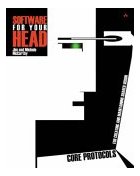Perfect sessions
This month, we’re reviewing the many proposals we received for our Call for Sessions for XP Day Benelux. How does that work, what happens during that mysterious “review period”? Let’s take a look behind the scenes…
 All the session proposals are added to our session review wiki. Everybody who has proposed a session gets access to the wiki. They get one month to help each other to improve their sessions and session proposals, by using the rules of the “Perfection Game”.
All the session proposals are added to our session review wiki. Everybody who has proposed a session gets access to the wiki. They get one month to help each other to improve their sessions and session proposals, by using the rules of the “Perfection Game”.
The perfection game is a simple format to give positive feedback, which is not as simple as it sounds. This “protocol” (and many others I use) was devised by Jim & Michele McCarthy in their “Software for your Head” book. Subscribe to the “McCarty Show” podcast to know more about these protocols. We had a session about the Perfection Game at last year’s conference.
The rules of the game
If you give feedback, you have to give 3 things:
- A score out of 10. The number itself doesn’t have a lot of meaning, we use the number to see if we get closer to perfection (10/10) in each iteration.
- What the proposer did to earn those points. It’s important to let the proposer know this, so that they keep or reinforce their strong points.
- What the proposer should do to earn 10/10. This has to be clear, actionable advice. This is the difficult part. When they first start using the perfection game, people usually “sugarcoat” negative feedback to make it look like positive advice. E.g. “Your proposal would be perfect if it wasn’t like this“. What can I do with such feedback? Nothing much.
We ask each session proposer to provide perfection game feedback to 3 proposals, so that we get 3 reviews per proposal. Everyone can choose which session they review, first come, first served. We have (at least) 2 iterations of feedback-improvement-feedback.
We don’t talk agile. We don’t do agile. We try to live it.
It’s not enough to talk the talk, you have to walk the walk. A conference about agility has to be agile. The session review process is open, all participants can see everything. That requires a lot of trust and cooperation. We arrange for early and regular feedback; and we act on it. We also review and correct our process.
Perfecting our game
This review process didn’t spring fully-formed from our brilliant minds. We review and improve our process every time we organize a conference.
Our first process was simple and classic: people send in proposals, we select the good ones and reject the bad ones. The problem with that is that people have only one shot at writing the perfect proposal. No iterations, no feedback. We had to reject sessions which might have become a lot better with some feedback. Not very agile.
We then tried a process similar to the one we experienced at the OT/SPA conferences. We wanted to attract local people as presenters. People who often didn’t have any session writing and presenting experience. Therefore, the conference organizers acted as “shepherds” to help the session proposers to improve their sessions. Afterwards, we were a bit uncomfortable with the “shepherding” bit. Did that mean we saw the session proposers as sheep? “Session coaches” is a better description of our job, but still there were two classes of presenters.
Next, we tried to involve the session proposers themselves in the review and selection process. Sessions were put on a wiki. Session proposers could review each other’s work and update their proposals according to the feedback they received. That worked a lot better. The only drawback was that our review process was a bit too heavy and that a review invites more criticism than constructive feedback.
So, this year, we simplified and replaced the review process with the perfection game. Let’s see how that works. Each year will be different, hopefully better.
Just enough structure. Simple rules, complex behaviour
Cooperation, open space, iterations, self-organizing doesn’t mean there’s no structure. On the contrary, you need enough structure to make this happen. There are rules, simple rules, and participants have to abide by them. Setting up, guarding and updating the rules is the job of the organizers. We own the process, the participants own the content and help us to improve the process.
[…] We’re exploring this by example for xp days benelux through relentless reflection and continous improvement; Pascal outlined how we facilitate the presenters in perfecting their sessions, and how we try to walk our agile talk, because we expect nothing less then perfection. […]
[…] and thought I should write a review of it, like any other book. I’ll use a variation of the perfection game for this […]